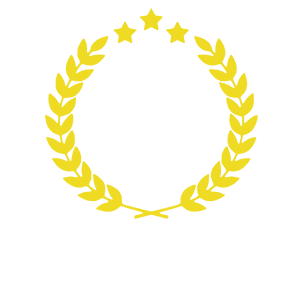
In today’s fast-paced, tech-driven world, traditional marketing methods alone are no longer enough to succeed in the competitive real estate market. Real estate professionals need to be proactive in embracing digital marketing strategies to reach a wider audience, engage potential clients, and ultimately close more deals. Understanding how to leverage the power of digital platforms is essential for staying ahead. This post will guide you through building a Digital Marketing Strategy for Real Estate and explain how CQ’s real estate training courses can help you master these strategies.
What is a Digital Marketing Strategy for Real Estate?
A Digital Marketing Strategy for Real Estate involves utilizing online channels such as websites, social media, email marketing, search engine optimization (SEO), and paid advertising to promote real estate listings and services. Unlike traditional methods, digital marketing offers the opportunity to reach a global audience and target specific buyer personas. Whether you’re an agent, property manager, or real estate investor, a solid digital marketing strategy helps you attract leads, nurture relationships, and convert them into clients.
Key Elements of a Successful Digital Marketing Strategy for Real Estate
- Building a Professional Website
- Your website is often the first point of contact for potential clients. It should serve as an online business card that showcases your expertise and portfolio. Make sure your website is mobile-friendly, easy to navigate, and optimized for SEO.
- Ensure that property listings are easy to search, and include high-quality photos and descriptions. CQ’s real estate courses cover the basics of setting up a professional website and understanding SEO techniques to make sure your site ranks well on search engines.
- Search Engine Optimization (SEO)
- SEO plays a crucial role in ensuring that your website shows up in search results when potential clients search for properties or real estate services in your area.
- Target local SEO strategies, using long-tail keywords such as “real estate agent in [city]” or “buy homes in [neighborhood].” With the right techniques, your site can rank higher in search engines, driving more organic traffic to your business.
- CQ’s real estate marketing courses teach students the importance of SEO and provide practical knowledge on optimizing website content for better visibility.
- Social Media Marketing
- Social media platforms like Facebook, Instagram, LinkedIn, and Twitter are essential for real estate marketing. They allow you to showcase your properties, share success stories, and build your personal brand.
- Real estate agents should create engaging content that resonates with their target audience—whether it’s beautiful photos of new listings, virtual tours, or home-buying tips.
- Leverage paid ads on social media platforms to target specific audiences. With tools like Facebook Ads, you can target potential buyers by location, interests, and demographic data.
- Email Marketing
- Email marketing remains one of the most powerful tools for nurturing leads in real estate. Sending personalized newsletters, property updates, and market reports helps maintain a connection with your clients.
- Segment your email list based on criteria like past clients, new leads, or interested buyers. This way, you can send tailored content that suits their needs and interests.
- CQ’s courses offer valuable insights into how to use email marketing effectively, from creating attractive email templates to understanding analytics.
- Paid Advertising (PPC)
- Paid advertising, like Google Ads and Facebook Ads, allows you to quickly target specific keywords and demographics, ensuring that your real estate listings appear before the right audience.
- For real estate agents, it’s crucial to create ads that stand out, using eye-catching images, compelling copy, and clear calls to action.
- Paid ads are particularly effective for getting listings in front of highly motivated buyers in a short amount of time.
- Content Marketing
- Content marketing is about providing value to your audience. Start a blog on your website where you can share tips, news, and market updates.
- High-quality blog posts that focus on real estate trends, home-buying advice, or market reports can establish you as a thought leader in your field. These blogs can also improve your SEO ranking and drive more traffic to your website.
- CQ’s real estate programs emphasize the importance of content marketing and provide students with the skills to create engaging and informative content.
- Video Marketing and Virtual Tours
- Video is a powerful marketing tool, especially in real estate. Virtual tours, property walk-throughs, and even client testimonials can be shared via YouTube, Instagram, or your website.
- Create videos showcasing your listings, providing insights into the home-buying process, or sharing community highlights. Video helps potential clients visualize themselves in a property, making them more likely to engage.
- CQ’s real estate marketing course covers video marketing strategies, teaching you how to create videos that effectively promote your listings.

Why You Need a Digital Marketing Strategy for Real Estate
- Reach a Larger Audience
- Unlike traditional marketing methods, digital marketing lets you reach a global audience. With online listings, social media, and email campaigns, you can target potential buyers across the country—or even around the world.
- Increase Engagement
- Digital marketing allows for real-time interactions with potential clients. Whether it’s responding to a comment on a Facebook post, answering a question via email, or engaging in direct messages, digital marketing fosters direct communication and builds relationships.
- Generate More Leads
- Through SEO, social media, email campaigns, and online ads, you can generate qualified leads who are actively searching for real estate services. Digital marketing helps you nurture these leads by providing them with valuable content and targeted information.
- Cost-Effective
- Compared to traditional marketing methods, digital marketing offers a more cost-effective solution for real estate professionals. With tools like Google Ads, Facebook Ads, and email marketing, you can reach a large audience without breaking the bank.
- Measure Success
- One of the greatest advantages of digital marketing is the ability to track results. Analytics tools allow you to measure the effectiveness of your campaigns, see how many people visited your website, how many interacted with your social media posts, and much more. This helps you continuously optimize your strategies for better performance.
How CQ Supports Your Digital Marketing Journey
At CQ, we understand that digital marketing is essential for success in today’s real estate market. Our specialized Real Estate Marketing Training programs equip students with the knowledge and skills needed to create effective digital marketing strategies. From building a strong online presence to leveraging social media platforms and mastering SEO, our courses provide hands-on training to help you thrive in the digital world. Whether you’re a new agent or a seasoned professional, CQ’s real estate courses will give you the tools you need to boost your business and increase your visibility in the competitive market.



